Science & Technology
/Knowledge
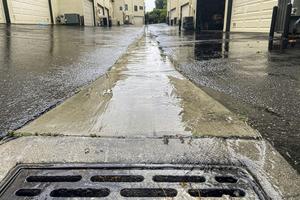
As climate change amplifies urban flooding, here’s how communities can become ‘sponge cities’
“When it rains, it pours” once was a metaphor for bad things happening in clusters. Now it’s becoming a statement of fact about rainfall in a changing climate.
Across the continental U.S., intense single-day precipitation events are growing more frequent, fueled by warming air that can hold increasing levels of moisture. Most ...Read more
Google updates $499 low-end Pixel phone, cuts tablet price
Alphabet Inc.’s Google rolled out a new version of its $499 lower-end Pixel smartphone, aiming to entice budget-minded shoppers with an updated screen and artificial intelligence features.
The Pixel 8a device, which comes a year after the 7a model, adds a faster processor, brighter screen, an option for double the storage and new AI features...Read more
Billionaire's 2nd SpaceX trip featuring spacewalk aims for early summer launch
CAPE CANAVERAL, Fla. — Billionaire Jared Issacman, who flew to space once with SpaceX, is already set for launch No. 2 in early summer.
The mission calls for new spacesuits introduced this past weekend designed so the crew can survive the plan to suck out all of the air of the spacecraft and allow Issacman and a crewmate to make the first ...Read more

Grizzlies are returning to Washington's North Cascades. How will that work?
SEATTLE — Among the jagged peaks of the North Cascades, lush alpine meadows rich with berries and wildflowers blanket valleys carved by glaciers, some threaded with trickling creeks.
But these idyllic landscapes are missing one big thing that had helped sustain them over the millennia: grizzly bears.
That will soon change after federal ...Read more
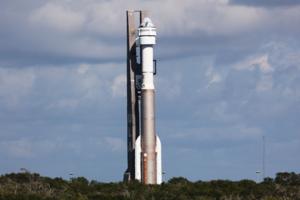
First attempt of Boeing Starliner mission with humans aboard is scrubbed
Boeing’s CST-100 Starliner will have to wait at least another day for its first human spaceflight as teams scrubbed a Monday night launch attempt.
With just over two hours on the countdown clock before a planned 10:34 p.m. Eastern time liftoff, an issue with an oxygen relief valve led to the call while NASA astronauts Butch Wilmore and Suni ...Read more

White House environmental official tours PFAS-site in Minnesota
A member of President Joe Biden's administration stopped in the city of Lake Elmo, Minnesota, on Monday to talk PFAS with local officials, visiting an area that's been at the forefront of contamination just three weeks after the Biden administration released the first-ever drinking water standards for the so-called "forever" chemical.
Brenda ...Read more
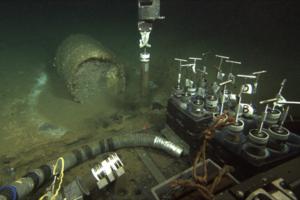
'Nothing is untouched': DDT found in deep-sea fish raises troubling concerns for food web
LOS ANGELES — For several years now, one question has held the key to understanding just how much we should worry about the hundreds of tons of DDT that had been dumped off the coast of Los Angeles:
How, exactly, has this decades-old pesticide — a toxic chemical spread across the seafloor 3,000 feet underwater — continued to reenter the ...Read more
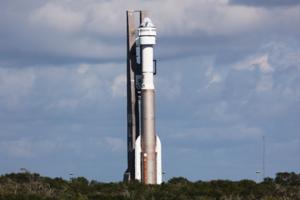
Boeing's 1st Starliner mission with humans set for historic Space Coast launch tonight
The stage is set for some space history to be made tonight as two veteran NASA astronauts aim to launch in a spacecraft that has never flown with humans before.
Butch Wilmore and Suni Williams will climb aboard Boeing’s CST-100 Starliner capsule and lift off atop a United Launch Alliance Atlas V rocket from Cape Canaveral Space Force Station�...Read more

What are nanoplastics? An engineer explains concerns about particles too small to see
It’s become common to read that microplastics – little bits of plastic, smaller than a pencil eraser – are turning up everywhere and in everything, including the ocean, farmland, food and human bodies. Now a new term is gaining attention: nanoplastics. These particles are even tinier than microplastics – so small that they’re ...Read more
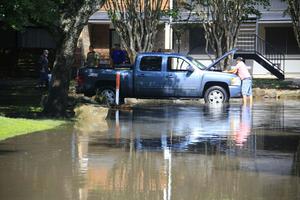
Houston area’s flood problems offer lessons for cities trying to adapt to a changing climate
Scenes from the Houston area looked like the aftermath of a hurricane in early May after a series of powerful storms flooded highways and neighborhoods and sent rivers over their banks north of the city.
More than 400 people had to be rescued from homes, rooftops and cars, according to The Associated Press. Huntsville registered ...Read more
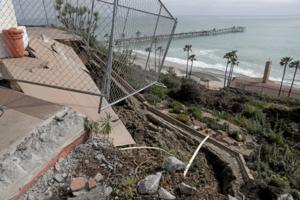
Calif. state Sen. Blakespear says coastal railroad is at a climate crossroads. 'The data is clear and the message more urgent.'
A coordinated, multiagency effort is essential to save Southern California's coastal rail corridor from sea-level rise and erosion, state Sen. Catherine Blakespear warned last week.
"The data is clear and the message more urgent than ever that our coastline near the rail line is at critical risk of failure," said Blakespear, D-Encinitas, at a ...Read more

Boaters dumping trash in South Florida's waters? Teens face felony charges
MIAMI — Two teen boaters are facing felony charges for pollution after they were caught on video dumping trash into the Atlantic Ocean during a South Florida boating party.
The 16-year-old and 15-year-old boys from Palm Beach County were arrested Friday about a week after a drone video of the illegal dumping went viral online, according to ...Read more
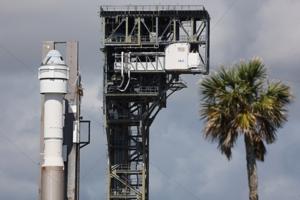
Boeing faces critical launch Monday ferrying astronauts to the International Space Station
LOS ANGELES — Ferrying astronauts to the International Space Station has almost become routine — but not for Boeing and not on Monday, when after years of delay it's finally set to launch two crew members to the orbiting platform on a critical test flight.
The Arlington, Virginia-based aerospace giant was awarded a $4.2 billion contract in ...Read more
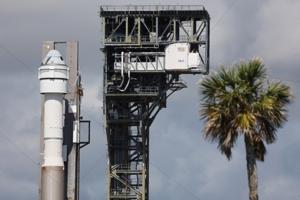
Boeing aims for Starliner astronaut launch Monday after delays, $1.5 billion spent
CAPE CANAVERAL, Fla. — Boeing has spent more than $1.5 billion to develop its CST-100 Starliner amid years of delays, but the payoff on its deal with NASA is on the horizon with the first human test flight set for launch Monday night.
Veteran NASA astronauts Butch Wilmore and Suni Williams will climb aboard the capsule for the Crew Flight ...Read more

Gas stove pollution harms poor and minority Americans most, study finds
Cooking with gas poses a health risk, but new research shows that risk isn’t evenly distributed.
Poorer Americans and racial and ethnic minority groups are disproportionately exposed to harmful gas stove pollutants, scientists at Stanford University, Harvard University and the Central California Asthma Collaborative found.
Previous studies ...Read more
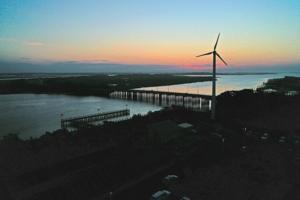
Bill awaiting DeSantis' OK would end years of renewable energy policies
TALLAHASSEE, Fla. — A bill sitting on Gov. Ron DeSantis’ desk would end the state’s support of renewable and clean energy and keep Florida reliant on fossil fuels, critics say.
If signed, the law would reverse 16 years of state policy, finishing the work started by former Gov. Rick Scott and undoing Gov. Charlie Crist’s signature piece ...Read more

Ancient shells -- found in American West -- may have been used as trumpets, study says
If you were standing on the edge of a canyon in the San Juan Basin of the Colorado Plateau about 1,200 years ago, you may have heard a loud, distant sound reverberating off the rock faces and ricocheting across the desert.
Like the gong of a bell or the deep tone of a ship’s horn, the sound would be a rich single note cutting through the dry ...Read more

Long-awaited Chicago policy doesn't do enough to protect migrating birds, advocates say
CHICAGO — Annette Prince peered between glossy downtown buildings: ”There’s a bird in that grate.”
Sure enough, sitting very still in the rain was a tiny white-throated sparrow, so drenched you could barely make out its canary-yellow face markings. The bird was too dazed to move — an easy target for the hungry seagulls that were ...Read more
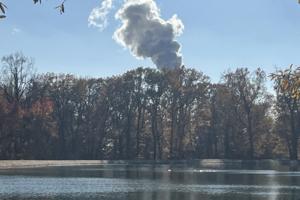
Toxic gas adds to a long history of pollution in southwest Memphis
MEMPHIS, Tenn. — For many years, Rose Sims had no idea what was going on inside a nondescript brick building on Florida Street a couple of miles from her modest one-story home on the southwestern side of town.
Like other residents, she got an unwelcome surprise in October 2022 at a public forum held by the Environmental Protection Agency at ...Read more
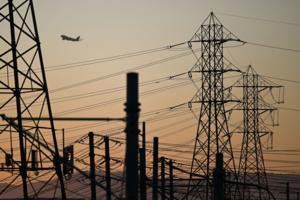
States rethink data centers as 'electricity hogs' strain the grid
State Sen. Norm Needleman championed the 2021 legislation designed to lure major data centers to Connecticut.
The Democratic lawmaker hoped to better compete with nearby states, bring in a growing industry, and provide paychecks for workers tasked with building the sprawling server farms.
But this legislative session, he’s wondering if those...Read more
Popular Stories
- 'Nothing is untouched': DDT found in deep-sea fish raises troubling concerns for food web
- First attempt of Boeing Starliner mission with humans aboard is scrubbed
- What are nanoplastics? An engineer explains concerns about particles too small to see
- Grizzlies are returning to Washington's North Cascades. How will that work?
- White House environmental official tours PFAS-site in Minnesota





